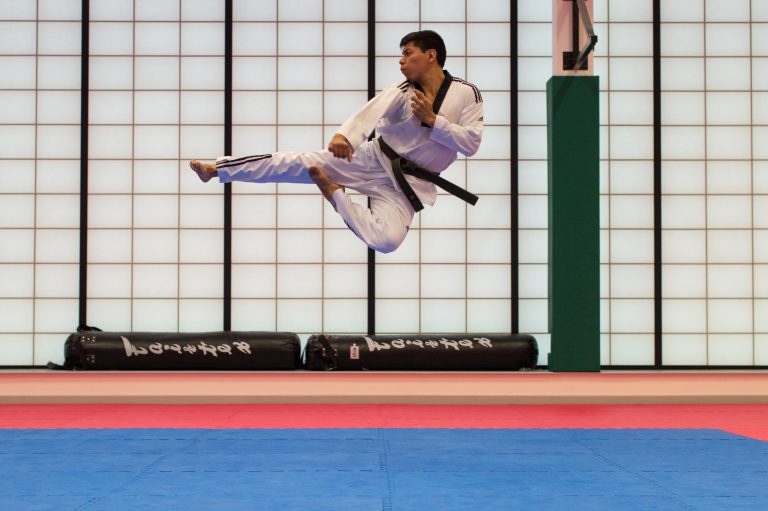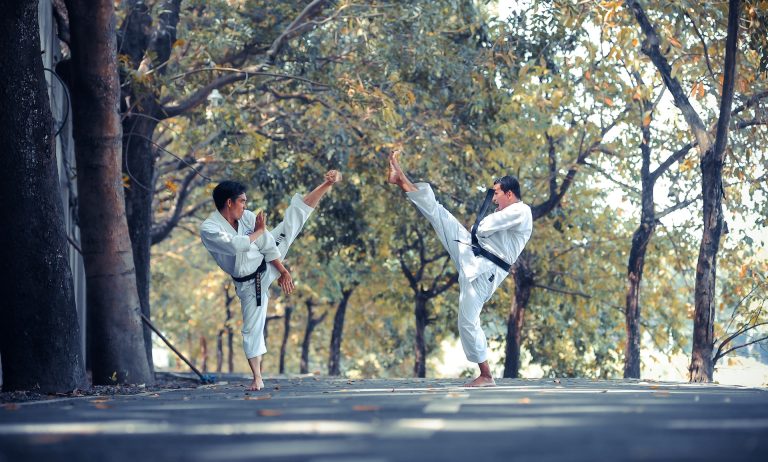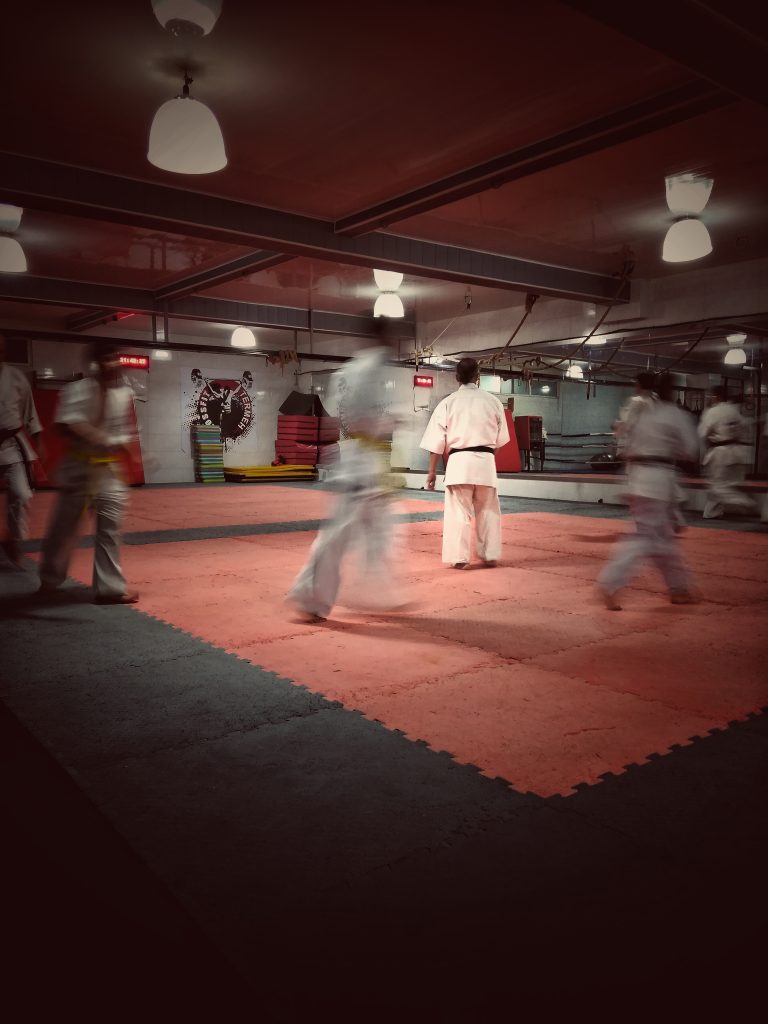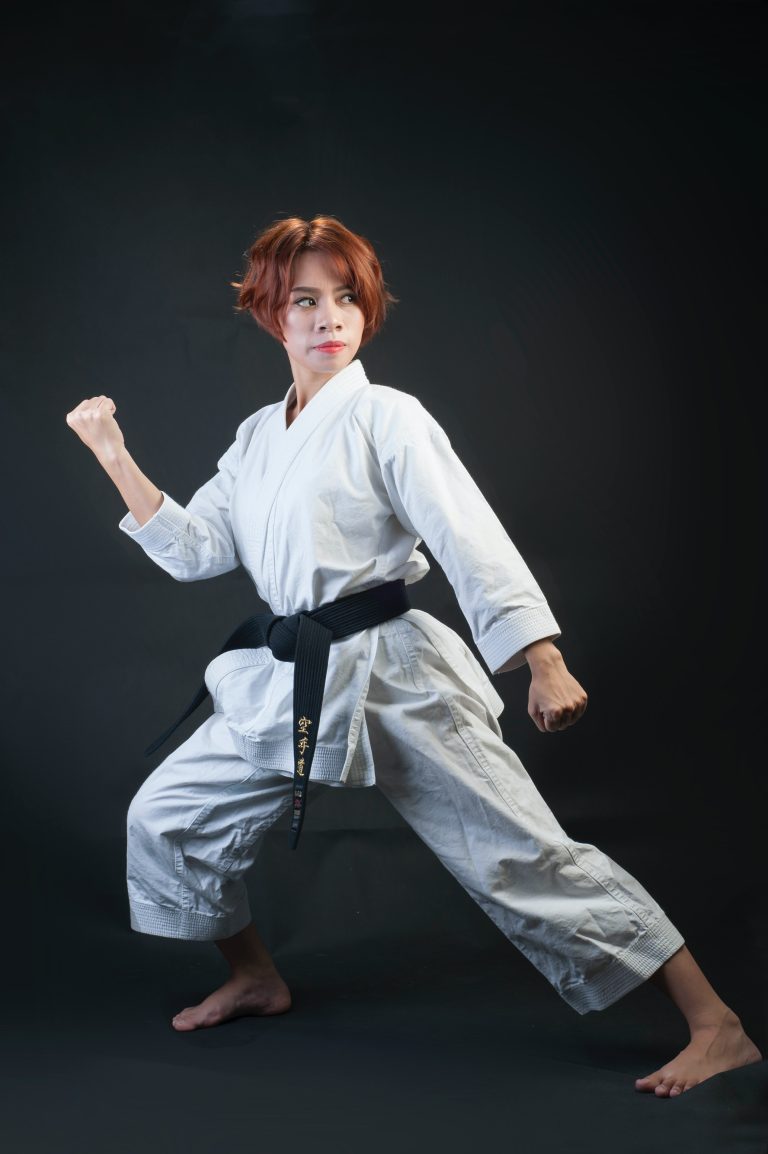What Skills Does Karate Teach You?
Karate is a martial art that originated in Ryukyu Islands of Okinawa, Japan. It is known for its dynamic strikes, kicks, and defensive techniques. However, karate teaches more than just fighting techniques. It instills discipline, respect, focus, and confidence in its practitioners. In this post, we will delve into the various skills that karate teaches you.
Self-Defense Skills
Karate is primarily known for its self-defense techniques. It teaches its practitioners how to effectively protect themselves from physical attacks. The techniques range from strikes, punches, kicks, blocks, throws, and joint locks. In addition, karate also teaches its practitioners how to anticipate an attack, how to react quickly, and how to defend themselves from multiple attackers.
Discipline and Focus
Karate practitioners are expected to abide by a strict code of conduct that emphasizes discipline and focus. They attend classes regularly, arrive on time, and follow instructions to the letter. Additionally, karate requires mental focus and concentration during training sessions. Through regular practice, students learn to focus their minds and concentrate on the task at hand, which can be applied to other areas of their lives outside of karate.
Physical Fitness and Health
Karate is a physically demanding sport that requires strength, agility, and endurance. Students are expected to undergo rigorous physical training that includes cardiovascular exercises, stretching, strength training, and weightlifting. As a result, practitioners of karate develop strong, lean muscles, improve their overall health, and reduce their risk of developing various health conditions such as obesity, high blood pressure, and heart disease.
Respect and Humility
Respect and humility are fundamental principles in karate. Students are taught to respect their instructors, fellow students, and the art of karate. They are expected to show courtesy and respect both inside and outside the dojo. Furthermore, karate instills in its practitioners the importance of humility – recognizing their limitations, acknowledging the strengths of others, and learning from both accomplishments and failures.
Confidence and Self-Esteem
Karate teaches its practitioners confidence and self-esteem. Through practice, students develop a sense of accomplishment and self-respect that carries into their daily lives. As they become more skilled, they acquire greater confidence in their abilities, which can help them tackle challenging situations in various areas of their lives.
What Skills Does Karate Teach You?
Introduction
Karate is an ancient martial art that originated in Okinawa, Japan, during the Ryukyu dynasty. It is a popular form of self-defense and has been known to provide physical, mental, and emotional benefits to practitioners. Over the years, karate has evolved into a competitive sport, and many people have started to practice it for fitness and health reasons. But what skills does karate really teach you? In this blog post, we will answer some of the most frequently asked questions about the skills that karate provides.
What are the techniques taught in karate?
Karate is known for its various techniques, including punches, kicks, strikes, and blocks. These techniques train the body to react quickly and effectively during combat. Karate also teaches practical self-defense techniques that can be used in real-life situations. These techniques include joint locks, throws, and pressure point strikes.
What physical skills does karate teach you?
Karate emphasizes physical fitness and conditioning. Practicing karate can help improve your strength, flexibility, coordination, balance, and endurance. Karate also provides an aerobic workout that can improve cardiovascular health. Additionally, karate teaches proper posture, body mechanics, and breathing techniques, which can enhance overall physical performance.
What mental skills does karate teach you?
Karate is not just about physical training. It also emphasizes mental discipline and focus. Practicing karate can help improve your concentration, memory, and attention span. Karate teaches self-discipline and self-control, which can help you stay calm and focused in stressful situations. Additionally, karate promotes emotional stability, which can help you deal with anxiety, depression, and other mental health issues.
What social skills does karate teach you?
Karate is often practiced in groups, which can help improve social skills. Practicing karate can help improve communication, teamwork, and leadership skills. Karate also teaches respect for authority, discipline, and the importance of following rules. Moreover, practicing karate in a group setting can help build a sense of community and belonging.
What life skills does karate teach you?
Karate can teach important life lessons that can be applied to various aspects of life. Karate teaches perseverance, which can help you achieve your goals no matter how difficult they may seem. Karate also teaches humility, which can help you stay grounded and focused. Karate can teach you to set priorities and make wise decisions, which can help you achieve success in various areas of your life.
How to Develop Karate Skills: A Step-by-Step Guide
Karate is not just a martial art but a way of life. It teaches one to be disciplined, focused and self-confident, capable of defending oneself or others during challenging situations. Do you want to learn the skills of karate and improve your physical and mental abilities? Follow these step-by-step instructions:
Step 1: Find a Qualified Karate Instructor
The first step towards gaining karate skills is to find a qualified and experienced karate instructor. Look for a reputable karate school or club with a certified instructor who holds a black belt in karate. Ask around for recommendations or search online for karate schools in your area. Once you have a few options, visit the schools, observe their classes and talk to their instructors to select the one that fits your training goals and learning style.
Step 2: Learn Karate Terminology and Etiquette
Karate has its own terminology and etiquette that every practitioner must learn and follow. Before you start practicing any karate techniques, it is important to learn the basic greetings, bowing procedures, and honorifics used in karate. Respect and etiquette are an integral part of karate practice, so be sure to follow them.
Step 3: Practice Basic Karate Techniques
The basic techniques of karate include punching, striking, kicking, blocking, and sparring. A qualified karate instructor will begin by teaching you the basic karate stances, such as the front stance, back stance, horse stance, and cat stance. After you have mastered the stances, you will start learning the basic techniques, starting with punches and kicks, followed by blocks and strikes.
Step 4: Train Regularly and Consistently
Karate is not a skill that can be learned overnight. It requires regular and consistent training to develop the skills and techniques necessary for mastery. Your instructor will set a training schedule that fits your skill level and training goals. It is important to commit to this schedule and attend all classes. Practice outside of class is also necessary to improve your skills.
Step 5: Develop Mental Toughness and Self-Discipline
Karate develops not only physical strength but mental toughness, self-discipline, and focus. These qualities are essential for success in karate and in life. During your training, you will learn to push yourself beyond your limits, develop self-control, and build resilience.
Step 6: Participate in Competitions and Testing
Participation in competitions and testing is an important aspect of your karate training. It is a way to gauge your progress, learn from your mistakes, and gain confidence in your abilities. Competitions and testing also provide opportunities for building camaraderie with fellow practitioners.
Step 7: Embrace the Martial Arts Lifestyle
Karate is not just a sport but a way of life. To become a skilled karate practitioner, you must embrace the martial arts lifestyle. This includes adopting a healthy diet and lifestyle, cultivating a positive attitude, and developing a growth mindset.
Conclusion
Karate is a martial art that teaches much more than self-defense techniques; it teaches self-discipline, mental toughness, and personal growth. By following these seven steps, you can develop your skills in karate and improve your physical and mental abilities. Remember, karate is not something that can be mastered overnight. It requires consistent training, hard work, and dedication to achieve excellence.
Inhaltsverzeichnis






